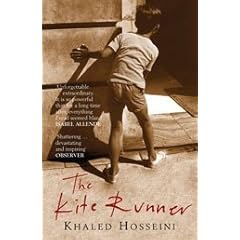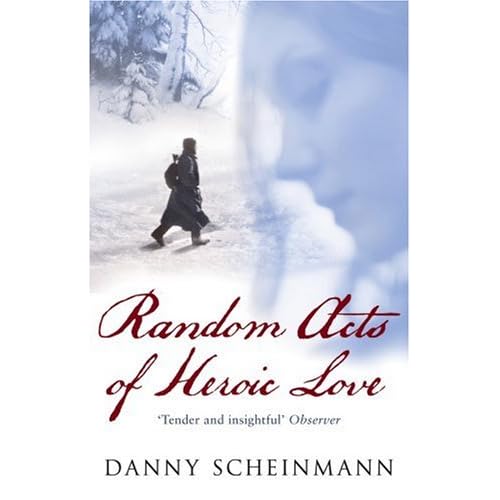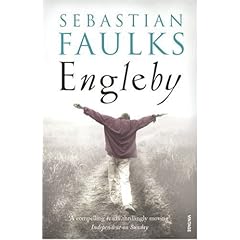More Books to Read In Between Your Knitting
The Kite Runner by Khaled Hosseini
Why is it when I buy books as presents for other people it take s me ages before I read it myself? I bought this for my Sister-in-Law ages ago and she raved about it.
s me ages before I read it myself? I bought this for my Sister-in-Law ages ago and she raved about it.
If you think this might be a political story about events in the Middle East you feel tired of reading about in the news, you would be wrong. It is a very personal and moving story of two close friends who are separated by political events, but also by one of their actions and their ethnic origins. The narrator of the story, one of these boys is no hero. Haunted by his past, he has to go back to Afghanistan in his 30's and find redemption for his previous actions.
What a story though! Several times I was moved to watery eyes. I thoroughly recommend this as compulsive reading for any 21st century book lover. I am going to read Hosseini's 2nd novel, A Thousand Splendid Suns which is also receiving awards and accolades.
Regeneration by Pat Barker
This is a novel about healing of those who have suffered great trauma of the mind in the First World War. It is accurately based on case studies and experiences of officers being treated in a psychiatric unit for a variety of war neuroses brought on by shell shock. The descriptions of the soldier's experiences are shocking as expected. What I found very interesting about this, was the disparity of two attitudes when approaching how to treat these patients. The officers are encouraged to talk about their experiences; in fact this is probably the birth of psychotherapy as we know it today. The idea is that bad memories that are repressed, that a soldier is not allowed to feel will resurface as a neurotic physical complaint. In contrast, some non commissioned officers are based in a hospital in which the treatment is to shock them back into health. There is a terrifying but real account of a soldier who cannot speak, but is forced to speak by being given a series of punish ing electrical shocks and is told they will continue until he does speak and he is not to leave the room until he has 'performed' satisfactorily.
ing electrical shocks and is told they will continue until he does speak and he is not to leave the room until he has 'performed' satisfactorily.
The novel also includes a fictional account of a real event; the meeting of Siegfried Sassoon and Wilfred Owen the well known World War I poets. Sassoon is having treatment after having lodged a soldier's appeal to Parliament as an objection to the continuance of a stale mate War.
The impressions this novel left with me, was that this war brought together classes in close proximity in a way that had not happened before. Young officers from the gentry, had a real love and responsibility for their men, thrown together with them in much the same conditions in the trenches. Obviously, we know that the well seasoned officers stayed well back from the front line, and so class distinctions there divided men into those who survived, and those who did not and could not.
I found the style of the writing quite masculine in a way, and very much of that period. I did not feel as if a modern novelist, a female had tried to write a contemporary account of this time. I very much felt that being an academic historian, her research was thorough and confident and was not at all ostentatious so despite the stodgy subject matter, this novel for me flowed. You can read more about her by clicking on this link for Pat Barker
Random Acts of Heroic Love by Danny Scheinmann
 What an awful title! But the novel is more promising. This novel is split between two parts. There is the contemporary part and a young person's struggle to com to terms with their grief and a father's attempts to connect and give that person a sense of their own place and history which had been denied to them. Then there is the period part, set in the early stages of World War II i.e. The Great War. Imprisoned in Siberia, the character narrating this part of the story escapes and starts a long journey home to his sweetheart Lotte. The descriptions of battle are as gory and typical of a Sebastian Faulks or Pat Barker novel, so no surprises there. I loved this part of the story and wanted to return to it impatiently when I read the contemporary part, although I found it slightly disappointing that the journey was so full of detail and adventure and made on foot up to a point, and then towards the end he suddenly gets on a train and is transported very quickly for the last part of the journey.
What an awful title! But the novel is more promising. This novel is split between two parts. There is the contemporary part and a young person's struggle to com to terms with their grief and a father's attempts to connect and give that person a sense of their own place and history which had been denied to them. Then there is the period part, set in the early stages of World War II i.e. The Great War. Imprisoned in Siberia, the character narrating this part of the story escapes and starts a long journey home to his sweetheart Lotte. The descriptions of battle are as gory and typical of a Sebastian Faulks or Pat Barker novel, so no surprises there. I loved this part of the story and wanted to return to it impatiently when I read the contemporary part, although I found it slightly disappointing that the journey was so full of detail and adventure and made on foot up to a point, and then towards the end he suddenly gets on a train and is transported very quickly for the last part of the journey.
A friend recently commented that novelists, who write great stories, can struggle when it comes to the ending and that she often does not enjoy a book with clumsy endings. Ever since she said that, I have been super critical of the 'great' books I have been reading and ever conscious of the fact that a meaty detailed story does not end satisfactorily.
Engleby by Sebastian Faulks
 I sat down and read this novel in a couple of days, I couldn’t put it down.
I sat down and read this novel in a couple of days, I couldn’t put it down.
The story narrated by the main character Engleby contains so much coldness, loneliness and bitter wit I couldn't help but sympathise. Actually, not only did I sympathise but I agreed with some of his observations. This became very alarming towards the end, when it is revealed that his thought processes could be analysed professionally as psychotic!
I respected the nostalgic but caustic look at the decades of the 70's and 80's in which I grew up and recognised some to the work ethics and attitudes he so intelligently describes. This is not a colourful, warm, flared trousers with hippy music and psychedelic drugs type of period novel. It contains all the coldness and austerity of the strikes in Britain, Thatcher's era and the struggle of the working classes who try to better themselves.
I can only say that despite the intensity of the writing and the page turning quality of this novel, it left me feeling a bit depressed and I had to question my reasons for reading it. When I was younger I would have put enjoyment further down the list below education and enlightenment when it came to my reading. However, I don't get an opportunity to share discuss or use that education now, so I prefer novels that transport me away from myself and my own experiences. This novel reminded me of everything that had happened in my own insignificant little existence growing up in Britain, going to boarding school and finally further education.
However, simmering below the detail and observation there is a thrilling mystery story, although I can say I knew what had happened a long time before the shocking revelation.
Read this when you are in a good mood, and not when you could easily be influenced into an episode of depression!
 s me ages before I read it myself? I bought this for my Sister-in-Law ages ago and she raved about it.
s me ages before I read it myself? I bought this for my Sister-in-Law ages ago and she raved about it. ing electrical shocks and is told they will continue until he does speak and he is not to leave the room until he has 'performed' satisfactorily.
ing electrical shocks and is told they will continue until he does speak and he is not to leave the room until he has 'performed' satisfactorily. What an awful title! But the novel is more promising. This novel is split between two parts. There is the contemporary part and a young person's struggle to com to terms with their grief and a father's attempts to connect and give that person a sense of their own place and history which had been denied to them. Then there is the period part, set in the early stages of World War II i.e. The Great War. Imprisoned in
What an awful title! But the novel is more promising. This novel is split between two parts. There is the contemporary part and a young person's struggle to com to terms with their grief and a father's attempts to connect and give that person a sense of their own place and history which had been denied to them. Then there is the period part, set in the early stages of World War II i.e. The Great War. Imprisoned in  I sat down and read this novel in a couple of days, I couldn’t put it down.
I sat down and read this novel in a couple of days, I couldn’t put it down.






No comments:
Post a Comment